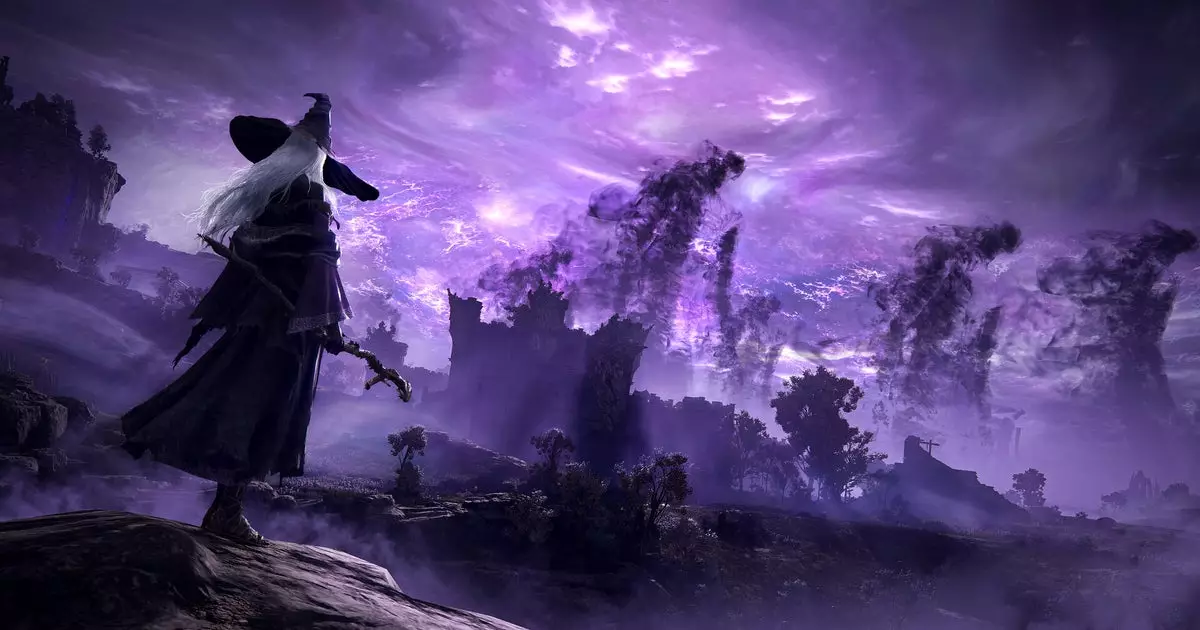The gaming community erupted with excitement last week as FromSoftware unveiled their latest addition to the Elden Ring franchise, titled *Elden Ring: Nightreign*. However, this excitement was met with mixed reactions upon the revelation that the game would predominantly focus on cooperative multiplayer gameplay. This article will analyze Nightreign’s mechanics, structure, and potential implications for both avid fans of the franchise and gamers who prefer solo experiences.
At its core, *Nightreign* introduces players to a reimagined version of the beloved Elden Ring universe, specifically the Limgrave region, now depicted through a collaborative lens. Players can select from eight distinct characters as they traverse this reworked landscape. The gameplay is segmented into 15-minute cycles, each culminating in a boss fight, reminiscent of the battle royale format that has recently captured players’ attention. As evening falls in the in-game world, the environment becomes more treacherous, shrinking the available space and intensifying the sense of urgency.
Some might find the limitations on character customization and the push towards cooperative play disappointing. However, FromSoftware has made strategic decisions that reflect an understanding of how players engage with their titles. Nightreign seeks to catalyze fast-paced gameplay, with players quickly leveling up before facing off against powerful bosses. While it may appear limiting, this design could foster competitive spirit and a sense of community.
FromSoftware has a storied history with multiplayer functionalities woven into its game mechanics, most notably in titles like *Dark Souls* and *Bloodborne*. However, Nightreign constitutes a marked departure from their traditional structure, creating a distinct platform where multiplayer is an integral feature rather than an incidental one. The game isn’t fundamentally designed for solo players, but it allows them to venture alone if they choose to.
The game emphasizes teamwork, specifically through its three-player team dynamic. Ishizaki, the game’s director, articulated a belief that this trio model encapsulates a harmonious balance between chaos and strategy, arguably creating a “sweet spot” for player interaction. However, the decision to omit a two-player option raises questions about flexibility, especially for those who may not want to engage in larger bands.
Additionally, specific familiar mechanics from previous titles, such as Spirit Ash items that allow the summoning of NPC allies, have been notably absent. This absence of traditional aids may leave solo players feeling abandoned or under-supported as they navigate this new adventure.
While *Nightreign* is marketed as having the option for solo play, the mechanics seem tailored primarily for co-op experiences. The scaling of enemy health and the exclusion of player-versus-player elements offer some reassurance to solo enthusiasts, yet the overall encouragement leans heavily towards team dynamics. This imbalance may present a challenge for longtime players who have enjoyed the immersive deep dives into the rich lore and intricate gameplay mechanics that single-player experiences provide.
Moreover, the alterations affecting community interactions further detract from a fully engaging solo experience. Players will no longer be able to leave messages around the map—a feature that has traditionally enriched gameplay by providing guidance and fostering camaraderie in FromSoftware’s past titles. This seemingly minor feature might have profound implications, as it has often offered vital insight and entertainment beyond the core gameplay.
Despite the mixed reception of *Elden Ring: Nightreign*, Ishizaki confirmed that this isn’t a definitive shift in the company’s approach to game design. He emphasized that there are no concrete plans for future multiplayer-driven spin-offs but focused intent on delivering a comprehensive experience with Nightreign. This uncertainty leaves room for speculation—could a more streamlined single-player alternative emerge as a response to this cooperative effort?
As players continue to dissect and adapt to the announcements surrounding Nightreign, it becomes increasingly clear that the game represents a bold, albeit divisive, gamble on FromSoftware’s part. For devoted fans of the Elden Ring franchise, Nightreign may symbolize a significant evolution, while for those who prefer solitary adventures, it may complicate the experience they once cherished.
*Elden Ring: Nightreign* introduces an ambitious trajectory for FromSoftware, reflecting both the evolution of gameplay preferences and the necessity for adaptive design in an ever-evolving gaming landscape. While cooperative play offers fresh opportunities for interaction, the challenge lies in ensuring that solo players are not sidelined as the game unfolds. The fate of Nightreign ultimately rests in the hands of the players, who will shape its legacy through their experiences.


Leave a Reply
You must be logged in to post a comment.